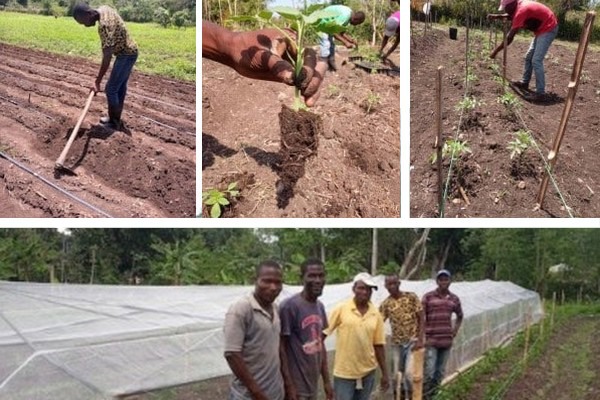The Covid-19 pandemic highlighted the vulnerability of food supply chains in Caribbean islands, especially for important commodities such as fresh fruit and vegetables. With the support of the Government of Taiwan, WorldVeg began a project in 2021 to conserve available vegetable biodiversity for future use with a major focus on developing a vegetable network in the region to improve production and introduce and promote new vegetable varieties for domestic and export markets to sustainably improve the livelihoods of resource-poor populations in six to seven countries in Latin America and the Caribbean, with some other countries added in later years. This reports just a few experiences from two of these countries – Haiti, Saint Kitts, and Nevis.

In Saint Kitts and Nevis, the Ministry of Agriculture earmarked several key areas for immediate intervention in 2022, which included the need to increase the production of broccoli, carrot, cucumber, tomato, and sweet pepper, among other crops. The Caribbean Agricultural Research and Development Institute (CARDI) in Saint Kitts and Nevis was specifically tasked with introducing and evaluating new lines of these commodities to identify and select suitable ones for local cultivation. WorldVeg became a critical partner for CARDI and the wider sector in this endeavor, having made years of progress in breeding and evaluating vegetable crops of interest to the country. The Ministry of Agriculture has expressed great satisfaction with the results of the collaboration, which has evaluated WorldVeg-developed lines of tomato, sweet pepper, and broccoli on the islands. Based on the early successes, they have asked for trials to be extended to three additional sites and have committed to providing additional resources to support this expansion.
In Haiti, the iF Foundation has been evaluating WorldVeg vegetable varieties since 2022, including tomato (14 lines), chili pepper (5), sweet pepper (5), habanero pepper (5), and pumpkin (10). Of these, based on good yields, adaptability, and acceptance by local consumers, four tomato lines (AVTO1903, AVTO1915, AVTO2101 AVTO2132) and three pepper lines (AVPP0417, AVPP0701, AVPP0913) were selected for seed multiplication. Other crops are still undergoing evaluation.
Seed systems in Caribbean countries, especially for vegetable seed, are typically weak and largely neglected by the private seed sector. Releasing locally developed and highly adapted vegetable varieties in the Caribbean can have a significant impact on the lives of smallholder farmers in the region.
Source: avrdc.org
